FIRST ACT
It is spring and the villagers are celebrating heartily at the church fair. Praising the joys of young love, they do, however, warn of the monotony that can appear all too quickly in married life. Marie bemoans to her lover Hans that she, at the behest of her parents, shall be wedded to an unknown man today. Hans attempts to calm her and encourages her to resist her parents’ wishes. Marie feels no better, but swears her love for Hans. She would remain his forever, if only her parents did not force her to wed another man. Hans’ placidity leads Marie to the belief that his love for her is not serious. She asks her lover about his origins and background, and he replies by saying that he is from a prosperous family. After the death of his mother, his father took a new wife and Hans was banished from the court. Hans laments his mother’s passing, and Marie comforts him. The young couple reassure each other of their reciprocal love. Marie’s parents, Kruschina and Kathinka, consult the marriage broker Kezal. He praises his own style of mediation and ensures Marie’s parents of the legitimacy of planning Marie’s wedding without her consent. Kezal reminds Kruschina that years ago he already promised Tobias Micha that his son may marry his daughter. Kathinka scolds her man for agreeing to give away their daughter without her consent. Marie will not back down. While Kruschina and Kezal press for the marriage, Marie reveals her love for Hans. She does not accept the contract signed between Kezal and her father. Kezal suggests that Kruschina meet Tobias Micha so that the two fathers may discuss the situation. Meanwhile, the villagers continue to drink and dance.
SECOND ACT
As the men enjoy their beer, Hans drinks to his happiness. Kezal swears by the value of money. Tobias Micha’s son Wenzel wants to free himself from his mother’s contract and collect his bride Marie, clearly out of his depth. He meets Marie, who recognises him instantly as her chosen groom. She warns him of his future bride, her love for another and how she will torment him to death. She invents a secret admirer for him and entices him to make a secret oath: Wenzel shall renounce Marie as his bride and never go near her again. Kezal attempts to separate Hans from Marie. Once again, the marriage broker praises money as a higher commodity than love and promises Hans another woman with great wealth. Hans resists, but Kezal offers him money to leave Marie free for Tobias Micha’s son. For 300 florins, Hans consents to such a worded contract. Secretly, Hans celebrates: he is now sure he has laid the path for his marriage to Marie. Kezal informs the villagers of the contract between him and Hans. That somebody could sell their bride for money, disgusts them and Kruschina.
THIRD ACT
A travelling circus interrupts the musings of the deathly-saddened Wenzel. The circus manager announces the highlight of the programme: the dancer Esmeralda, an Indian chief, a cannibal and, as the main attraction, a bear from America. However, Muff, the Indian impersonator, informs the manager that the bear impersonator got drunk in a bar and is unable to perform. A replacement cannot be found, as the bear costume fits no one. Then they notice Wenzel, who has the correct size. The circus manager senses his chance and invites Wenzel to join the circus troupe, with the promise that were he to perform as the bear and dance in costume, he would receive Esmeralda as his wife. Wenzel quickly forgets his reservations that he cannot dance, and his mother’s reproaches for such attempts, when Esmeralda makes eyes at him. In contrast to his parents, Agnes and Tobias Micha, Wenzel wishes to know nothing more of his betrothal to Marie. Marie is appalled at hearing of Hans’ alleged betrayal, and Kezal confirms her fears by showing her the contract signed by Hans. Kathinka and Kruschina suggest that their daughter become engaged to Wenzel. He wishes to marry her immediately, as he recognises her as the charming girl who made him renounce his oath. Marie laments her lost happiness with Hans. She wishes to know no more from him and allows him to speak no words when he tries to explain his contract with Kezal. Kezal now finally wants to enact the sale of the bride. Marie is shocked that Hans is in agreement. To everyone’s amazement, Tobias Micha recognises his lost son in the shape of Hans. Hans’ plan begins to bear fruit: the fact he is Tobias Micha’s son means that he has, in fact, not sold Marie to another. Marie must now decide between him and Wenzel, a decision she finds easy. She chooses Hans. The parents of the happy couple laugh at Kezal’s failure, while he bemoans his defeat. Suddenly, there are news about an escaped bear. Wenzel can be recognised under the bear costume, and is ridiculed by everyone and scolded by his mother Agnes through shame. Tobias Micha reconciles himself with his son, and there is now nothing to stand in the way of the marriage between Hans and Marie.
Act 1
A crowd of villagers is celebrating at the church fair ("Let's rejoice and be merry"). Among them are Mařenka and Jeník. Mařenka is unhappy because her parents want her to marry someone she has never met. They will try to force her into this, she says. Her desires are for Jeník even though, as she explains in her aria "If I should ever learn", she knows nothing of his background. The couple then declare their feelings for each other in a passionate love duet ("Faithful love can't be marred").
As the pair leave separately, Mařenka's parents, Ludmila and Krušina, enter with the marriage broker Kecal. After some discussion, Kecal announces that he has found a groom for Mařenka – Vašek, younger son of Tobiáš Mícha, a wealthy landowner; the older son, he explains, is a worthless good-for-nothing. Kecal extols the virtues of Vašek ("He's a nice boy, well brought up"), as Mařenka re-enters. In the subsequent quartet she responds by saying that she already has a chosen lover. Send him packing, orders Kecal. The four argue, but little is resolved. Kecal decides he must convince Jeník to give up Mařenka, as the villagers return, singing and dancing a festive polka.
Act 2
The men of the village join in a rousing drinking song ("To beer!"), while Jeník and Kecal argue the merits, respectively, of love and money over beer. The women enter, and the whole group joins in dancing a furiant. Away from the jollity the nervous Vašek muses over his forthcoming marriage in a stuttering song ("My-my-my mother said to me"). Mařenka appears, and guesses immediately who he is, but does not reveal her own identity. Pretending to be someone else, she paints a picture of "Mařenka" as a treacherous deceiver. Vašek is easily fooled, and when Mařenka, in her false guise, pretends to woo him ("I know of a maiden fair"), he falls for her charms and swears to give Mařenka up.
Meanwhile, Kecal is attempting to buy Jeník off, and after some verbal fencing makes a straight cash offer: a hundred florins if Jeník will renounce Mařenka. Not enough, is the reply. When Kecal increases the offer to 300 florins, Jeník pretends to accept, but imposes a condition – no one but Mícha's son will be allowed to wed Mařenka. Kecal agrees, and rushes off to prepare the contract. Alone, Jeník ponders the deal he has apparently made to barter his beloved ("When you discover whom you've bought"), wondering how anyone could believe that he would really do this, and finally expressing his love for Mařenka.
Kecal summons the villagers to witness the contract he has made ("Come inside and listen to me"). He reads the terms: Mařenka is to marry no one but Mícha's son. Krušina and the crowd marvel at Jeník's apparent self-denial, but the mood changes when they learn that he has been paid off. The act ends with Jenik being denounced by Krušina and the rest of the assembly as a rascal.
Act 3
Vašek expresses his confusions in a short, sad song ("I can't get it out of my head"), but is interrupted by the arrival of a travelling circus. The Ringmaster introduces the star attractions: Esmeralda, the Spanish dancer, a "real Indian" sword swallower, and a dancing bear. A rapid folk-dance, the skočná, follows. Vašek is entranced by Esmeralda, but his timid advances are interrupted when the "Indian" rushes in, announcing that the "bear" has collapsed in a drunken stupor. A replacement is required. Vašek is soon persuaded to take the job, egged on by Esmeralda's flattering words ("We'll make a pretty thing out of you").
The circus folk leave. Vasek's parents – Mícha and Háta – arrive, with Kecal. Vašek tells them that he no longer wants to marry Mařenka, having learned her true nature from a beautiful, strange girl. They are horrified ("He does not want her – what has happened?"). Vašek runs off, and moments later Mařenka arrives with her parents. She has just learned of Jeník's deal with Kecal, and a lively ensemble ("No, no, I don't believe it") ensues. Matters are further complicated when Vašek returns, recognises Mařenka as his "strange girl", and says that he will happily marry her. In the sextet which follows ("Make your mind up, Mařenka"), Mařenka is urged to think things over. They all depart, leaving her alone.
In her aria ("Oh what grief"), Mařenka sings of her betrayal. When Jeník appears, she rebuffs him angrily, and declares that she will marry Vašek. Kecal arrives, and is amused by Jeník's attempts to pacify Mařenka, who orders her former lover to go. The villagers then enter, with both sets of parents, wanting to know Mařenka's decision ("What have you decided, Mařenka?"). As she confirms that she will marry Vašek, Jeník returns, and to great consternation addresses Mícha as "father". In a surprise identity revelation it emerges that Jeník is Mícha's elder son, by a former marriage – the "worthless good-for-nothing" earlier dismissed by Kecal – who had in fact been driven away by his jealous stepmother, Háta. As Mícha's son he is, by the terms of the contract, entitled to marry Mařenka; when this becomes clear, Mařenka understands his actions and embraces him. Offstage shouting interrupts the proceedings; it seems that a bear has escaped from the circus and is heading for the village. This creature appears, but is soon revealed to be Vašek in the bear's costume ("Don't be afraid!"). His antics convince his parents that he is unready for marriage, and he is marched away. Mícha then blesses the marriage between Mařenka and Jeník, and all ends in a celebratory chorus.


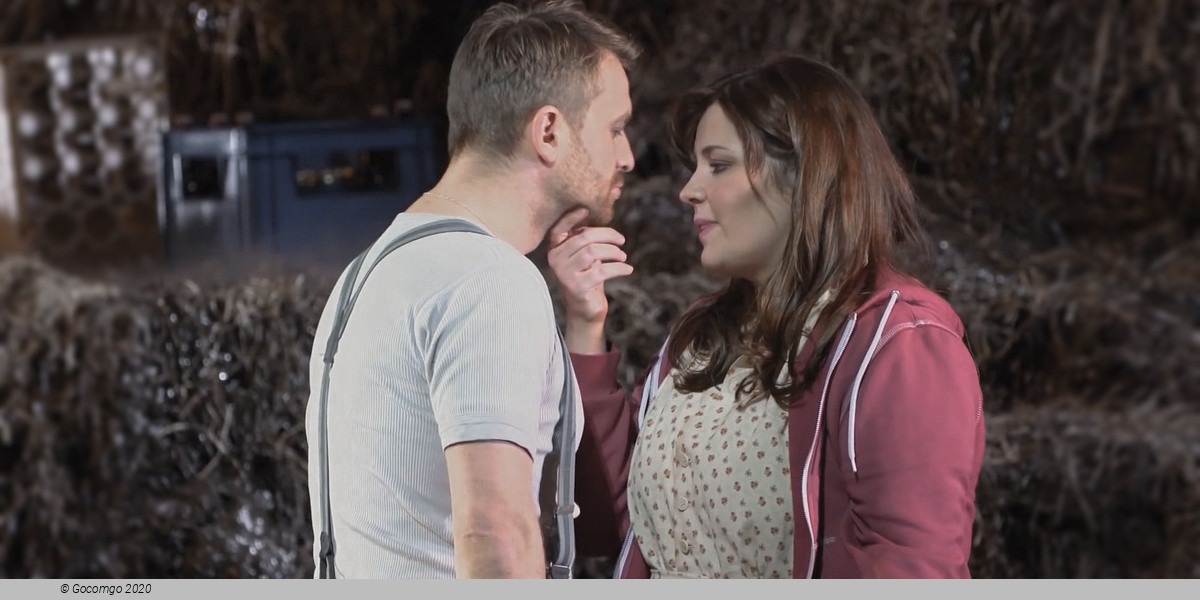
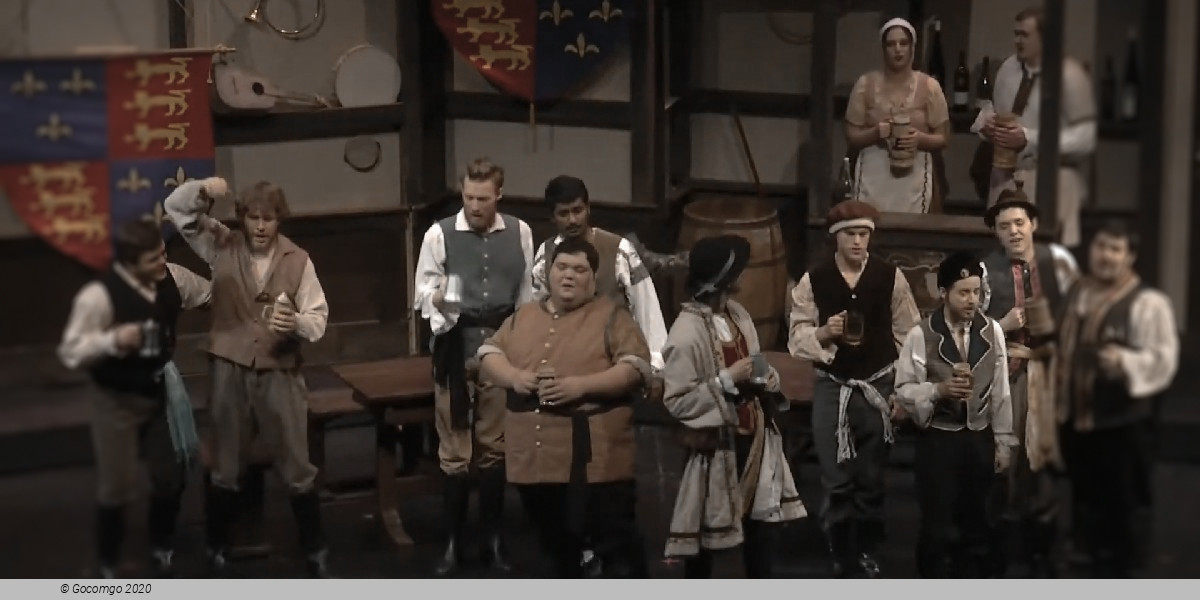
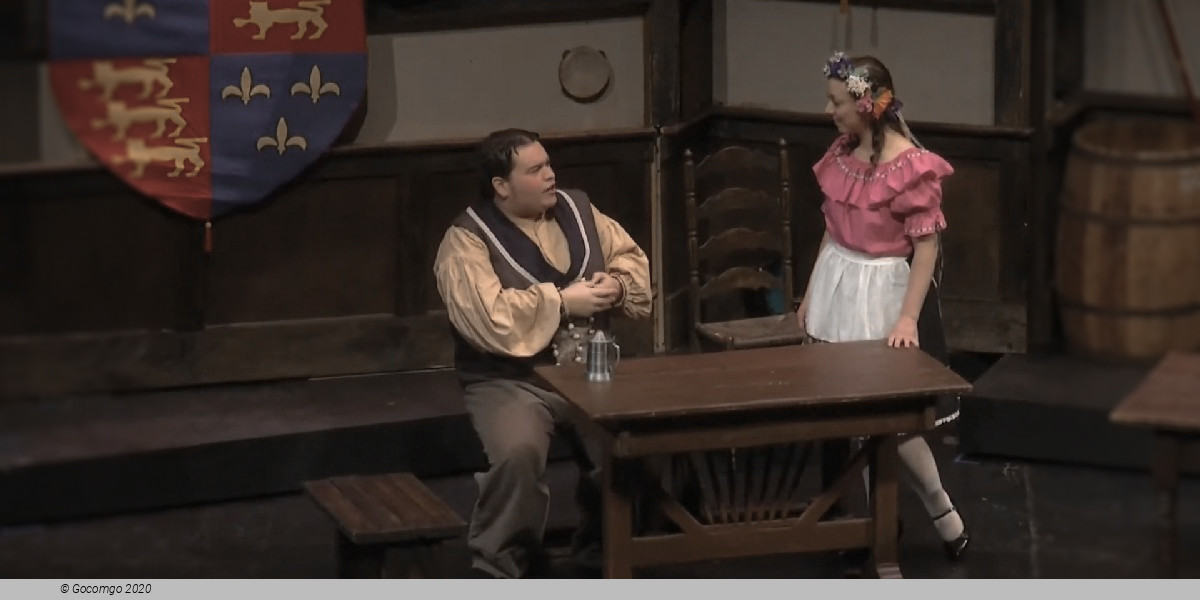
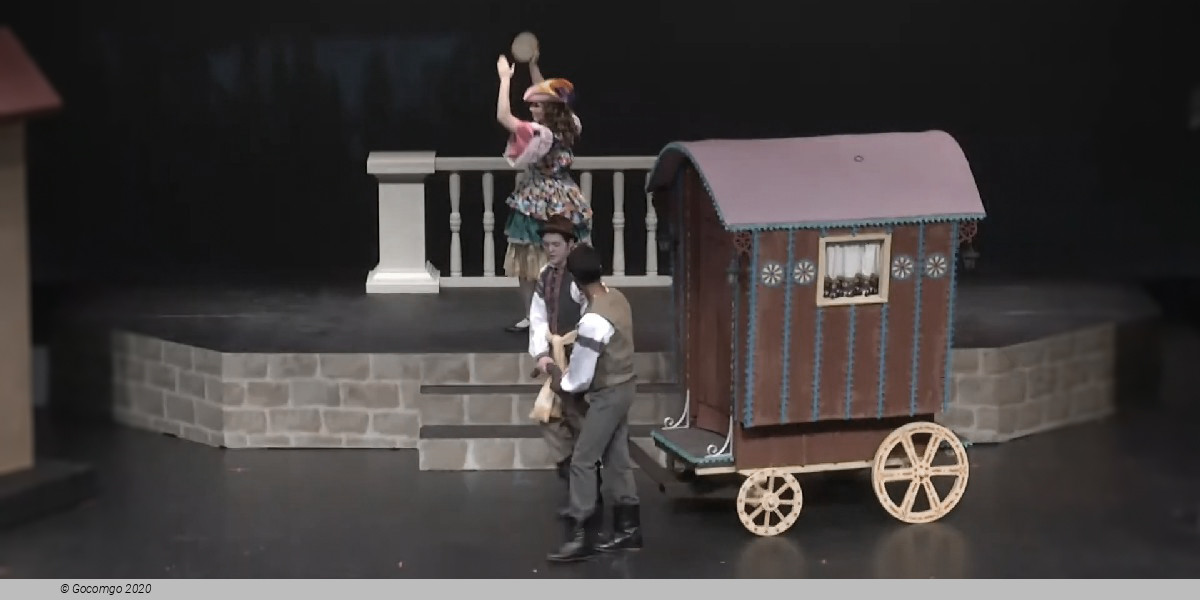
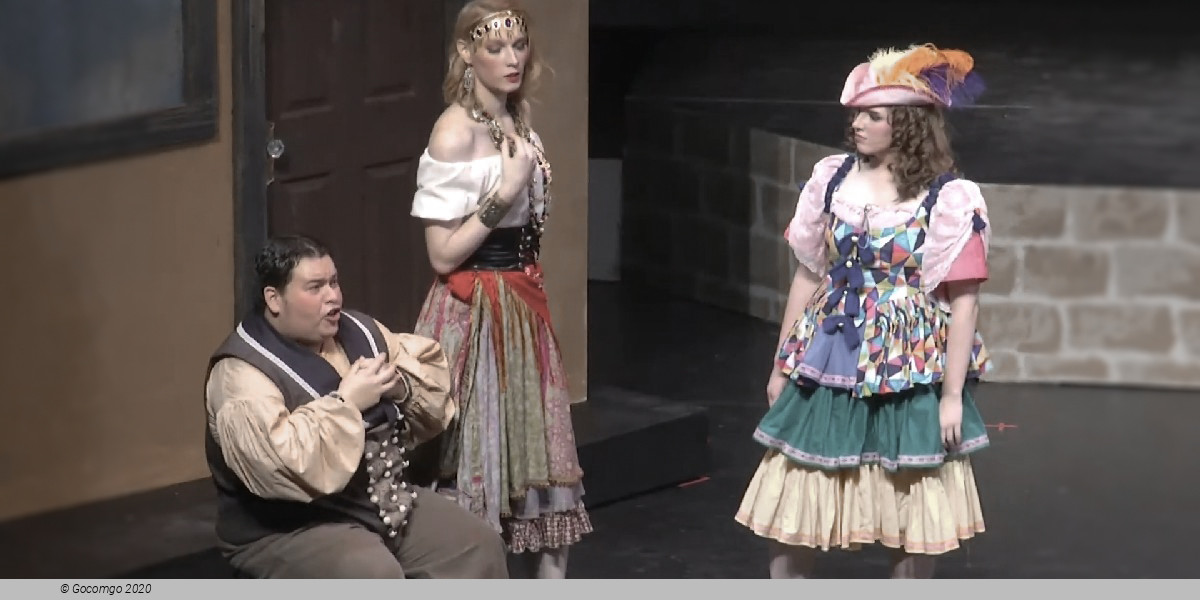
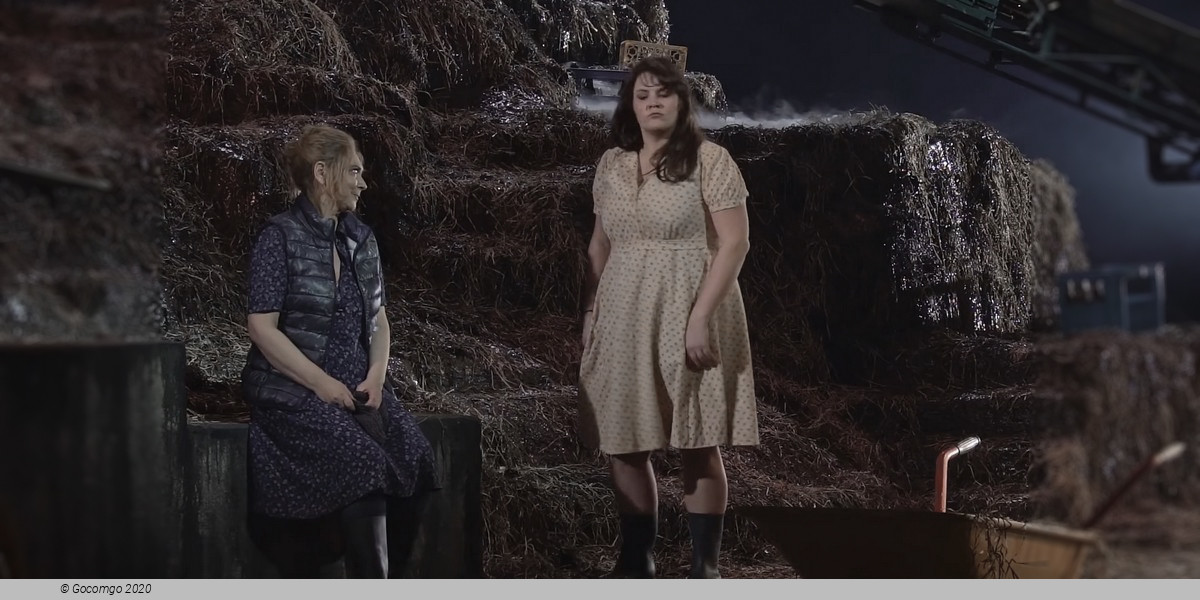
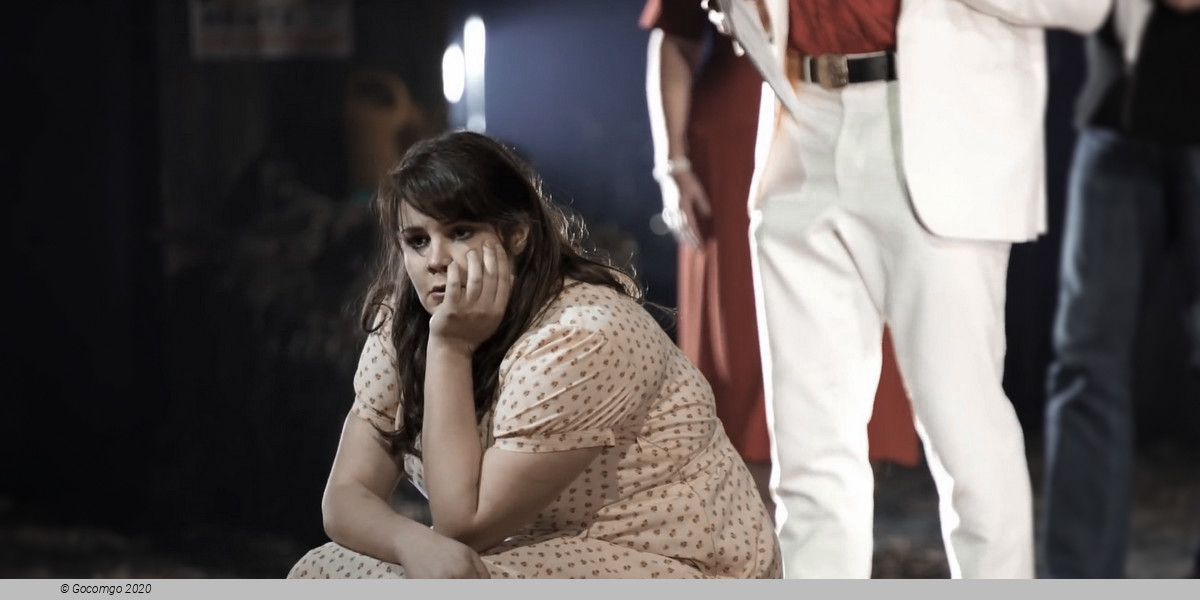
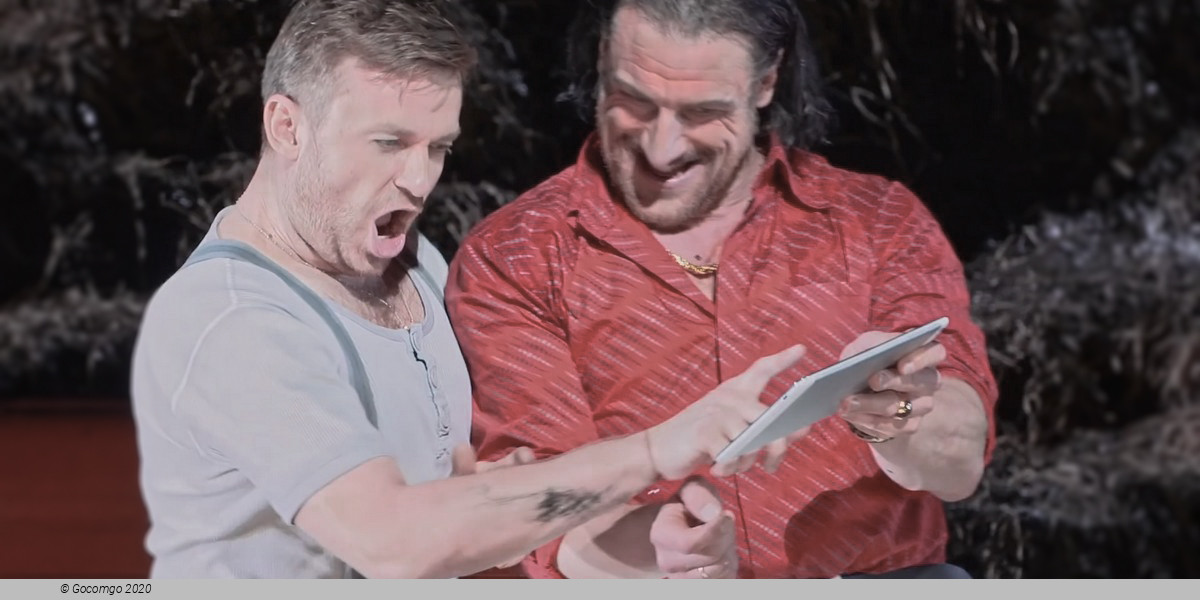
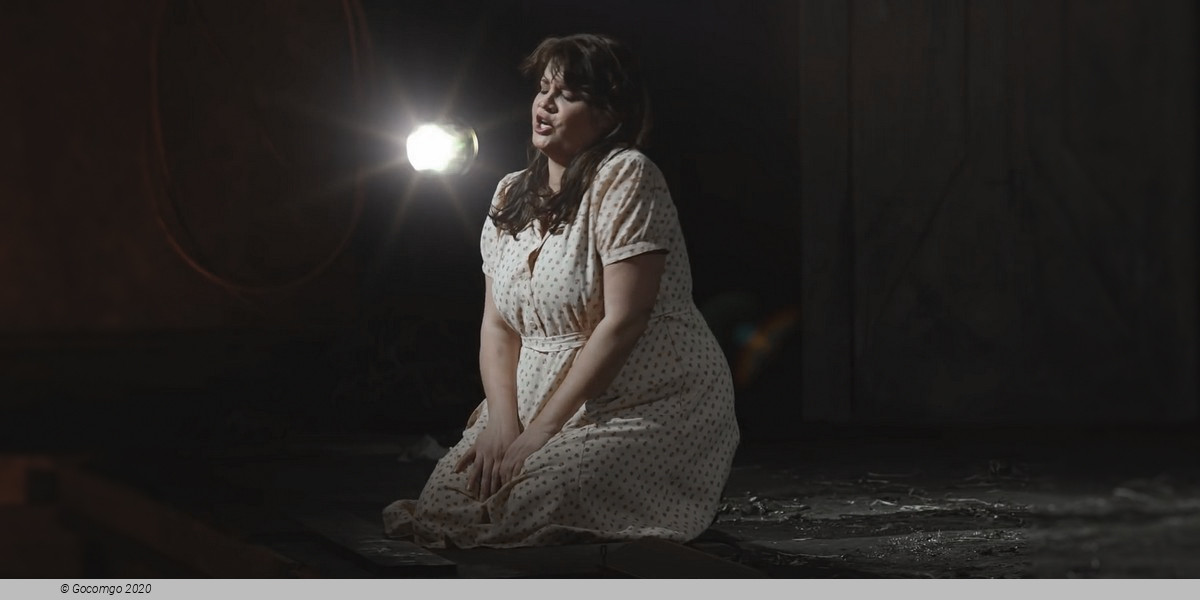
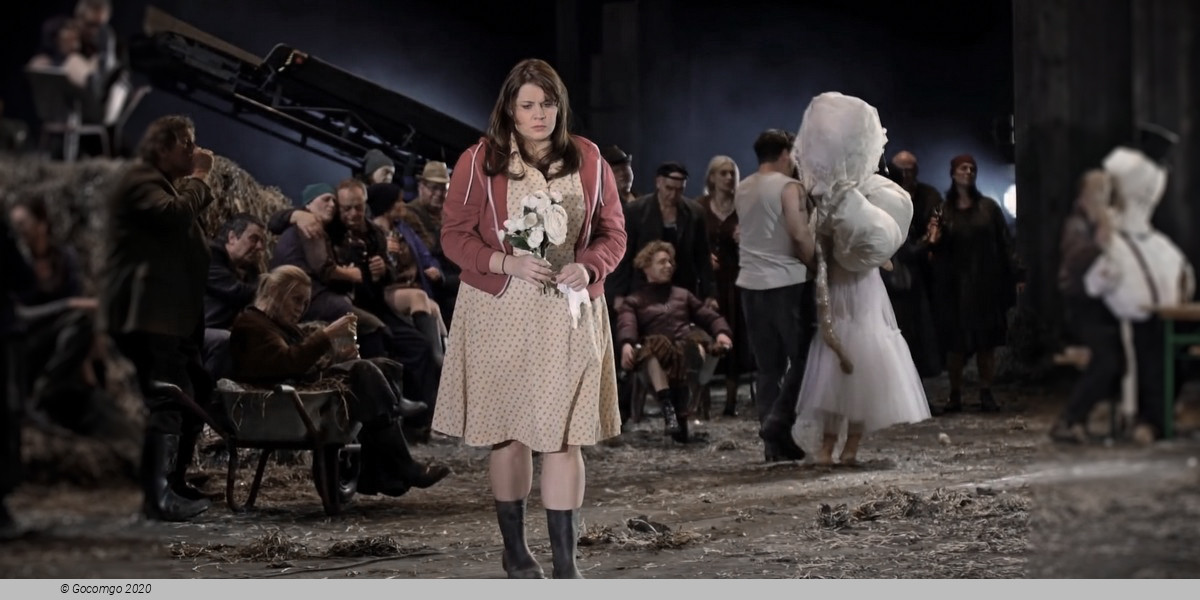
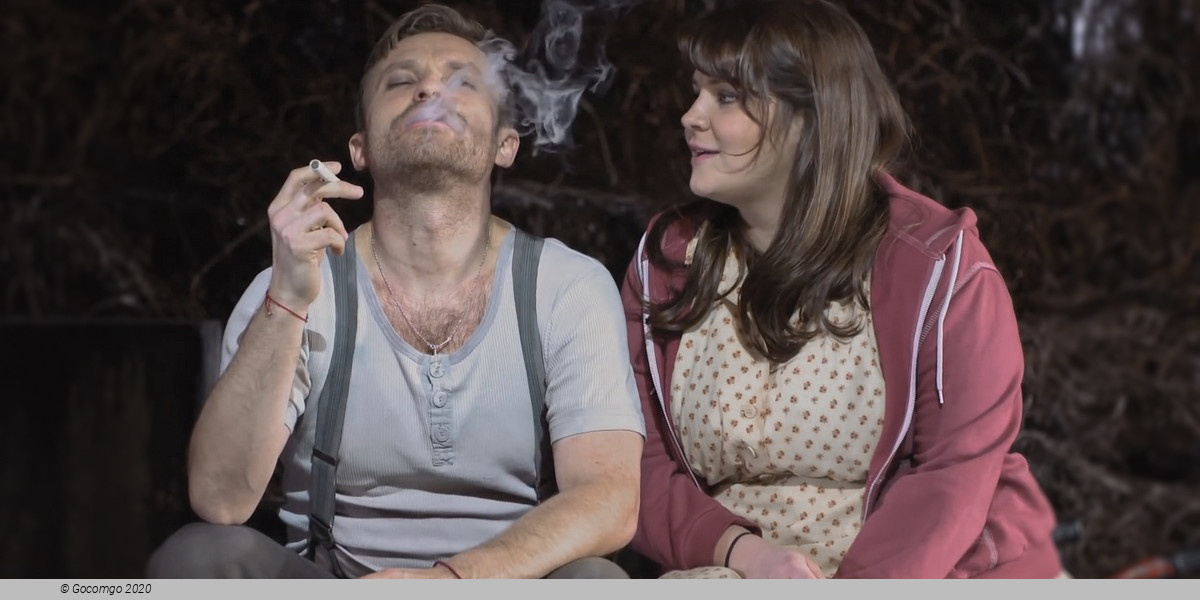
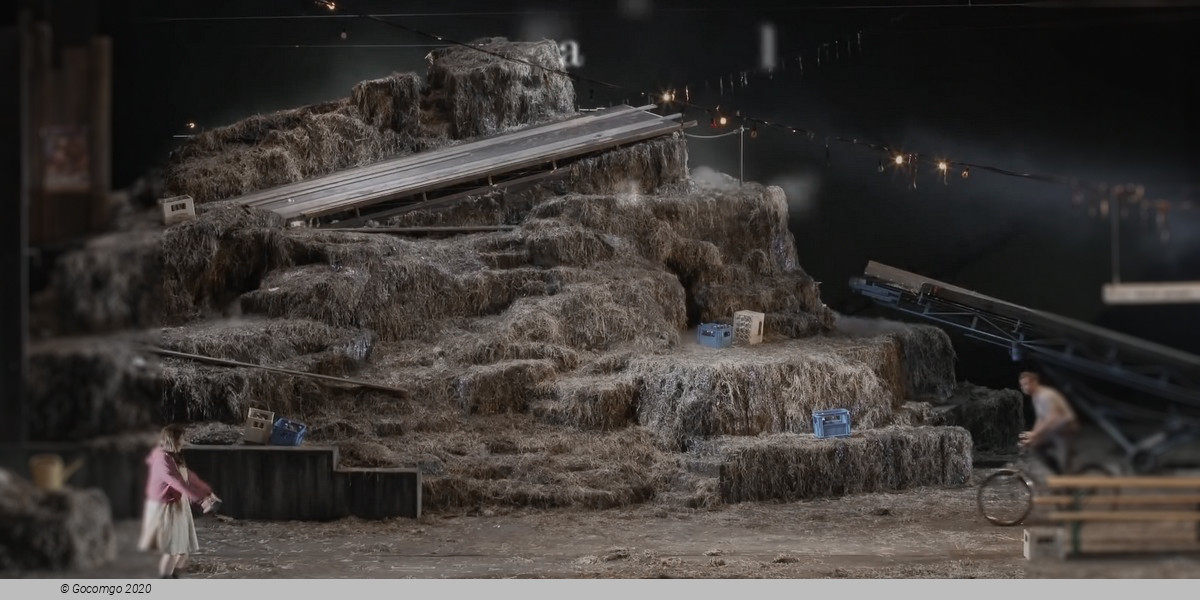
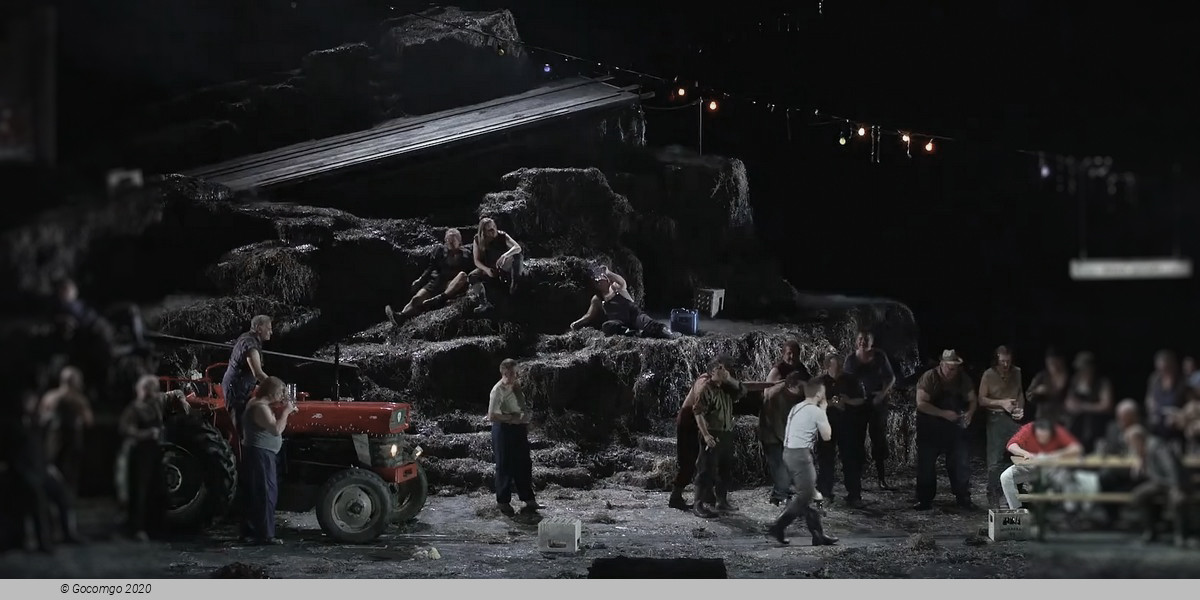
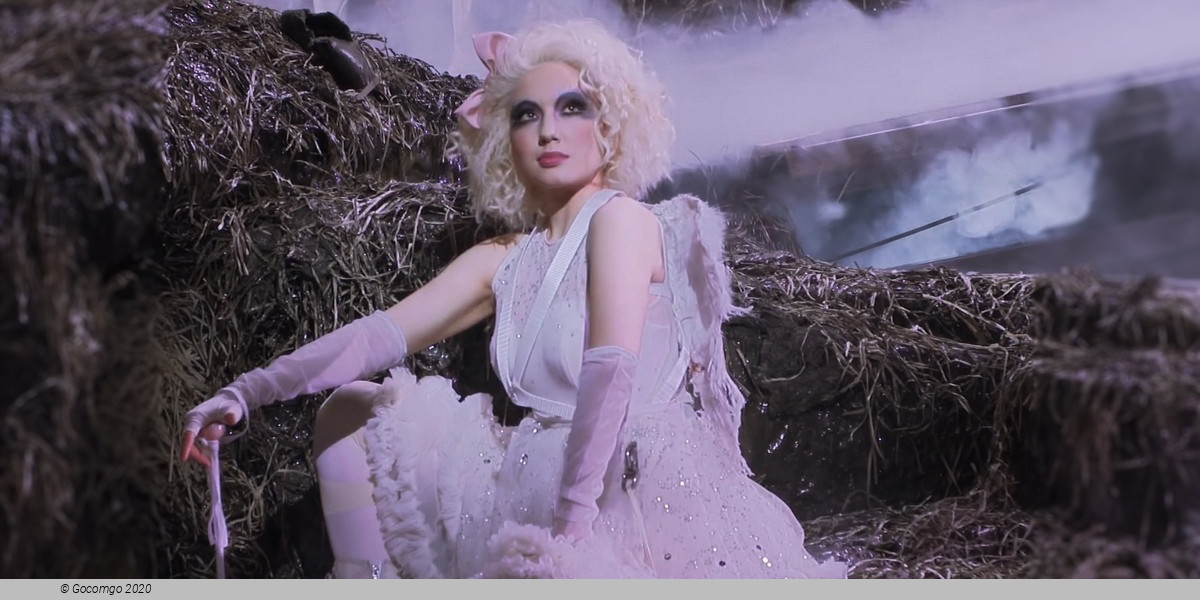
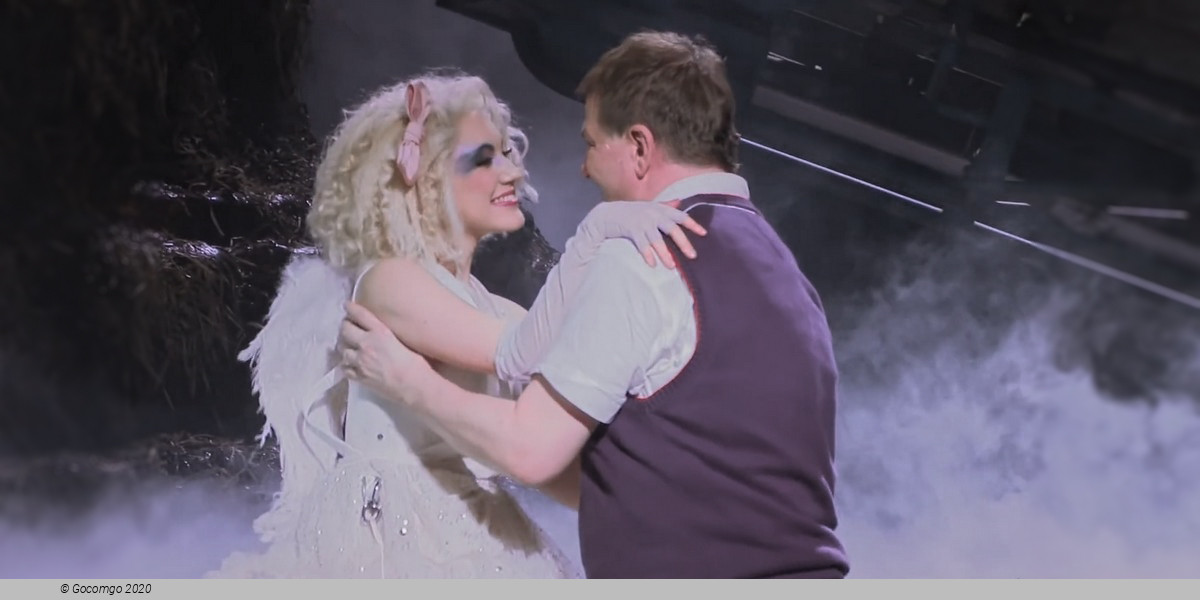
 Max-Joseph-Platz 2
Max-Joseph-Platz 2